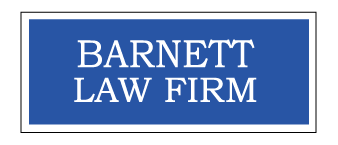A will protects your loved ones by ensuring that you, not the court, will decide how to distribute
your assets. Barnett Law firm, PA will work closely with you to develop a will that provides for
the care of your minor children, ensures smooth distribution of your estate, and provide security
for your loved ones. Wills are available as part of our flat fee Estate Planning package.
Simple Will
A simple will is a single legal document that describes who you are and the names of your
beneficiaries. The simple will also identifies the person you are appointing to be your personal
representative and provides your directions as to who will care for your children or for anyone
else you are legally responsible.
Pour-over Will
A pour-over will is a testamentary device wherein the writer of a will creates a trust, and decrees
in the will that the property in his or her estate at the time of his or her death shall be distributed
to the Trustee of the trust.
Trusts
An intervivos trust, a trust you set up that goes into effect while you’re still alive, can be either
revocable, meaning that you can change your mind, or irrevocable, meaning it cannot be
changed.
Trusts provide the benefit of allowing assets to pass to their intended recipients without having
to go through the Probate process. In addition, since a Trust is a private document, it provides
confidentiality that the Probate process, which is on the public record, does not.
Our broad experience and background will help you to create trusts designed to protect your
assets, plan for eldercare, avoid the probate process, and generally assist with all of your estate
planning needs.
Revocable Living Trusts
The revocable living trust is an estate planning tool by which you transfer ownership of your
property into a trust throughout the course of your lifetime. A revocable trust is a trust that can
be modified or revoked while the grantor is alive. Unlike a will, which comes into play only
after you die, the living trust can start benefiting you while you are still alive.
The revocable living trust is established by a written agreement or declaration that appoints a
trustee to manage and administer the property of the grantor. The trust acts as a rulebook for
how your assets are to be handled when you die. As the grantor, or creator of the trust, you
can name any competent adult as your trustee; some people prefer to choose a bank or a trust
company to fill this role. There are many reasons to choose a revocable living trust, including,
Avoidance of Probate and Privacy Preservation.
Irrevocable Trusts
An irrevocable trust is a trust that cannot be modified or revoked without the permission of the beneficiary.
The grantor, having transferred assets into the trust, effectively removes
all of his or her rights of ownership to the assets and the trust. The main reason for setting up an irrevocable trust is for estate and tax considerations. The benefit of this type of trust for estate assets is that it removes all incidents of ownership, effectively removing the trust’s assets from the grantor’s taxable estate. The grantor is also relieved of the tax liability on the income generated by the assets. While the tax rules will vary between jurisdictions, in most cases, the grantor can’t receive these benefits if he or she is the trustee of the trust.
The assets held in the trust can include, but are not limited to, a business, investment assets, cash and life insurance policies.
Special Needs Trust
At Barnett law Firm, PA, we work to ensure that families employ the right estate planning tools to protect themselves from the financial burden of providing long-term care for a member with special needs. By setting up a special-needs trust, assets may be set aside for the care of a family member without placing the assets in that person’s name. It gives the family control of the assets without disqualifying the beneficiary from receiving funding through government assistance programs.
Special-needs trusts must be carefully set up to provide maximum protection and avoid potential predatory practices by family members and dishonest trustees. The trust can be named as the owner and/or beneficiary of a life insurance policy. Separate special-needs trusts also can be used to protect personal injury settlements or judgments from jeopardizing government benefit
eligibility. Most importantly, special-needs trusts can help parents coordinate their estate plans and provide peace of mind that their children with long-term special needs will be provided for.

